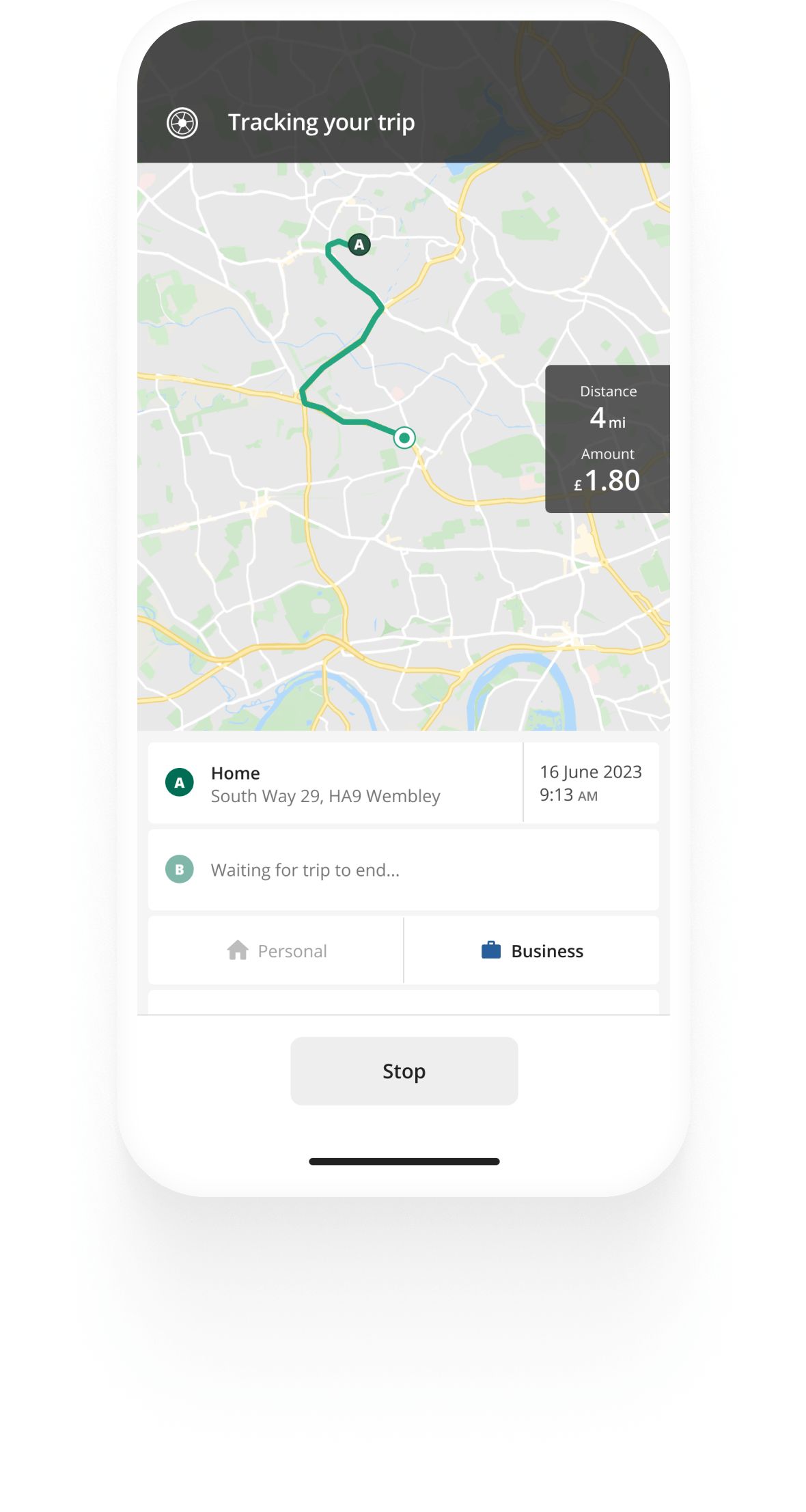Track mileage automatically
Get started
Claim tax relief for uniform laundry expenses
Whether you’re an employee or self-employed, you can claim the HMRC uniform laundry allowance to deduct the costs of washing your work uniform from your taxes. Keep reading to find out when laundry expenses are deductible, how much you can claim, and how to do it.
How does HMRC laundry allowance work
The HMRC uniform laundry allowance is a tax relief that allows you to deduct the cost of washing your work uniforms from your taxes.
If you have a specific uniform that clearly shows who you work for or your job role, and you need to wear it for work, you might be eligible. Examples of employees in this category include hospital security guards, airline attendants, nurses, and uniformed railway staff.
It’s usually calculated using a fixed amount of £60 as set by HMRC, which covers the estimated annual cost of laundering and dry cleaning uniforms. You can claim this deduction each year without the need to provide receipts, as long as you wear the uniform for work and have paid income tax that year.
Example
Let's say you claim a flat rate tax relief (the rate is £60) and pay income tax of 20% in the given year. That means the laundry allowance will provide you with a tax deduction of £12. (60*0.20=12)
However, if you do have receipts for the cost of laundry, you are sometimes able to claim the actual costs, rather than the HMRC flat rate deduction.
The allowance applies to both employees and self-employed people, though there are some differences in how each group can claim the allowance.
You can use the HMRC tool to check what you can claim and how.


Mileage tracking made easy
Trusted by millions of drivers
Automate your mileage log Automate your mileage log

Automatic mileage tracking and HMRC-compliant reporting.
Get started for free Get started for freeEligibility criteria
To be eligible for the uniform laundry allowance, your clothing must meet specific criteria:
- Distinct uniform: Must be a specific uniform associated with your job or employer, easily recognisable as work clothing, for example due to it having company branding on it, or it being a specific costume for an actor or perfomer. Simply pinning a company badge on regular clothing is not enough to make it a uniform under these provisions.
- Worn exclusively for work: The clothing should not be suitable for general wear outside of work.
- Safety and protective gear: Items like safety helmets and high-visibility jackets also qualify, as they are necessary for certain professions.
Exemptions
You can’t claim relief for:
- The initial cost of purchasing your work attire
- Cleaning, fixing, or replacing regular clothing used as work clothes (even if there is a required style or colour)
- Washing your own uniform or specialised clothing if free laundering is available from your employer but not utilised.
How much can you claim
The amount you can claim depends on your employment type and industry.
If you’re an employee, HMRC offers a flat rate deduction for many industries, with a fixed amount of £60 per employee.
However, if you’re employed in a role that incurs higher laundry costs, you may be entitled to a bigger deduction. For example, airline staff who often need to dry clean their work uniform, can claim between £720 and £1,022 to reflect the higher costs of having to have their uniforms professionally cleaned.
HMRC has compiled a list of common professions and corresponding allowance amounts. It's still advised you consult the actual amount you can claim with your employer, as it may vary company to company.
If you're self-employed, the amount can vary, based on the actual costs of cleaning your work uniform. For example, if your annual work laundry expenses are £200, you can claim this full amount on your tax return, as long as it’s justifiably spent on cleaning your uniform.
How to claim
Claiming your uniform laundry allowance is not very complicated. Here are the step to follow.
Employees
If you’re an employee, the first step is to fill out a P87 form through your HMRC online account, or print it out and send it by post. You can claim either the HMRC’s flat rate for your specific industry/company, or the actual amount you spent on laundry that tax year.
You only need to keep receipts if you claim the actual amount you spent, but do not need receipts or records otherwise. Keep in mind that if you wish to have the exact amount deducted, you must submit your claim via post.
Self-employed
If you’re self-employed, clothing expenses count as your allowable business expenses. You should include the laundry costs in your Self Assessment tax return.
To support your claim, keep receipts or bank statements showing your laundry expenses. If you don’t have exact receipts, you can estimate the costs based on your realistic usage.
As a self-employed person, there are also many other business expenses you’re able to save tax money on. Read our self-employed guide for more information.
FAQ

Tired of logging mileage by hand?
Effortless. HMRC-compliant. Liberating.
Top posts
- HMRC advisory fuel rates 2025
- Automate mileage tracking in healthcare with Driversnote Teams UK
- Driversnote Teams vs MileIQ for teams
Related posts
Free mileage log book template
Latest update: 7 May 2025 - 2 min read
Whether you're an employee or a business owner, it's crucial to keep good mileage records in a mileage log book.
HMRC Mileage Guide
Latest update: 2 April 2025 - 5 min read
Welcome to our guide on mileage claims and reimbursement in the UK. This guide will walk you through the rules that apply to your situation.
HMRC advisory fuel rates 2025
Latest update: 5 December 2025 - 5 min read
HMRC has announced the revised advisory fuel rates, effective 1 December 2025. See how they apply to employees and employers.
.svg)

